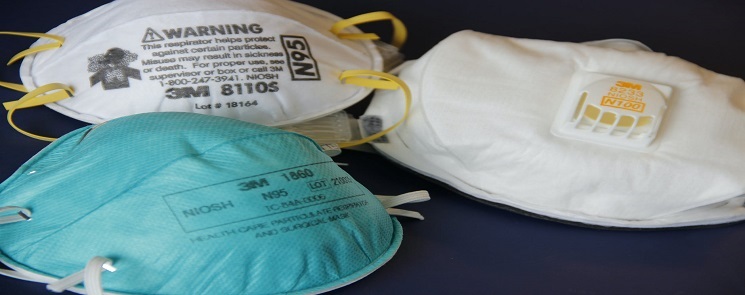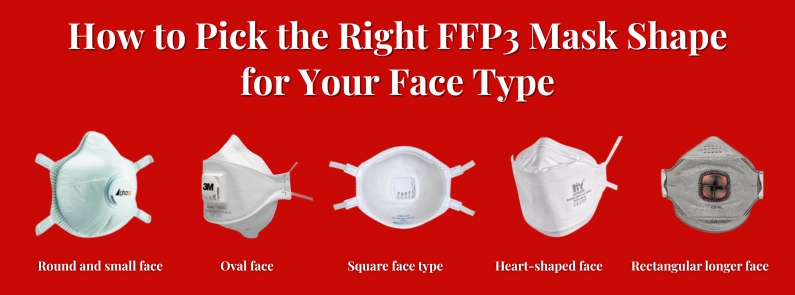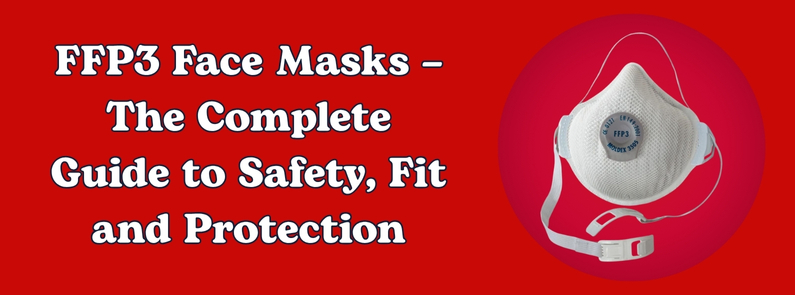 You probably would have effectuated the notion “Prevention is better than cure” multiple times in life. From deciding essential medicines before going on a trip to getting regular check-ups done to ensure physical well being, a little cautiousness certainly goes a long way. After all, acting once the disease (or calamity) has already made a headway can prove out to be more challenging and difficult to deal with.
You probably would have effectuated the notion “Prevention is better than cure” multiple times in life. From deciding essential medicines before going on a trip to getting regular check-ups done to ensure physical well being, a little cautiousness certainly goes a long way. After all, acting once the disease (or calamity) has already made a headway can prove out to be more challenging and difficult to deal with.
One of the many measures to safeguard your healthy state of being well in advance is using respiratory masks in public. Using masks pro-actively ensures healthy hygiene at an individual as well as community levels.
Read on to find out different scenarios when you should consider wearing a respiratory mask.
1. To Protect Yourself from Covid19 and Other Diseases: Covid19 is a viral disease that has spread across the globe thereby establishing itself as a pandemic. Bacterial and Viral diseases (often regarded as Contagions) spread from people to people through small respiratory droplets called sols/aerosols. Here’s how you can protect yourself from these particles through efficacious use of masks.
- While Visiting Public Places: Staying away from an infected person is often not possible in places like subways, busses, offices etc. Therefore, the best way to counter the transmission of the disease is by wearing masks. Variants such as Ffp3 dust masks effectively block the entry of disease-causing microbes through nose and mouth.
- While Visiting Shopping or Grocery Stores: Keeping in mind the asymptomatic nature of Covid19, it is important to note that you may come in contact with the infected while billing or in queues. Also, the particulate matter of disease remains on the surface of tangible objects like chairs, trolleys, tables, food packets etc. You may unknowingly contact these particles by touching the specific objects. Masks considerably reduce the number of leisurely mouth and nose touches thereby bringing down the chances of the infection finding a way inside the body.
- While Visiting Hospitals: If you’ve planned to visit any hospital for treatment or for visiting a patient, it is imperative for you to wear a face mask. Especially when visiting Patient care areas, OPDs, inpatient wards as these areas may be high on viral load. It is advisable to wear a full face mask or triple layer masks to safeguard yourself.
2. To Ensure Protection Against Dust Particles: Unlike Sols and aerosol, dust particles are quite larger in size and may be visible or invisible. After inhalation, while some of these particles are expelled from the nose itself thanks to the defence mechanism of the body, finer particles may travel further and affect your lungs considerably. Consequences such as hay fever, coughing and sneezing may follow. For people suffering from chronic diseases like asthma and other existing heart and respiratory ailments, the risks just get Therefore, dust masks or other face coverings are perfect for use in cases where you’re likely to confront dust particles like travelling to office or home, going through a construction site etc.
3. To Protect Yourself from Gasses in Factories: Different types of gasses that are used in factories include fuel gasses, oxidant gasses, shielding gasses etc. These gasses are not only harmful for the environment but also for humans as their inhalation can trigger various adverse reactions in the body. With the gradual reopening of factories by government and administrations of different countries, the use of masks is now necessitated for twin objectives i.e. for ensuring protection from these gasses and from the coronavirus. Thus, while visiting factories, you can use Ffp3 dust masks or sundstorm mask to remain unaffected.
While the WHO has recommended wearing masks, it is important to ensure their judicious use to maintain seamless supply. Avoid the use of masks inside the home or in-car while travelling alone. Also, avoid panic buying or buying masks that are best suited for specific purposes such as N95 respirators (for medical). Follow these ways to ensure that you stay safe and protected at all times by responsibly using your masks.



